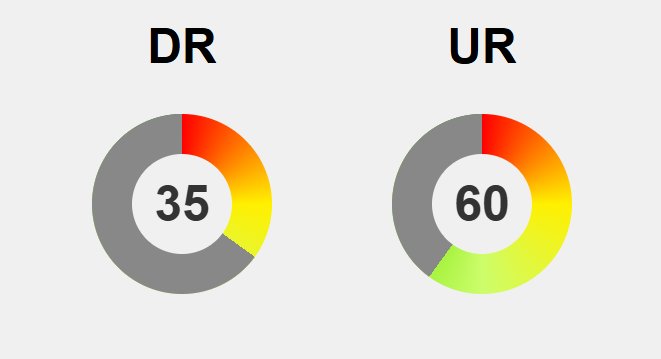The story of Christopher Columbus is a compelling saga of daring exploration, groundbreaking discovery, and enduring controversy—highlighting how one voyage dramatically reshaped our understanding of the world. From humble beginnings in Genoa to sailing across treacherous oceans, Columbus’s unwavering ambition led him to stumble upon the Americas, a “New World” that would forever alter history. Yet, beneath the tale of exploration lies a complex legacy marked by violence, exploitation, and cultural upheaval inflicted upon indigenous populations. Today’s perspectives are shifting, challenging the heroic narrative with calls to acknowledge the suffering caused and to reevaluate how history is remembered. Columbus’s voyages sparked a global exchange of crops, ideas, and people, but also initiated centuries of colonization and destruction. This narrative invites us to reflect: can progress be separated from its darker consequences? As we confront these truths, we are reminded that understanding history’s full scope is essential for forging a more just, inclusive future.
Christopher Columbus’s Journey from Genoa to Global Legend
Christopher Columbus’s story begins in Genoa, Italy, where he was born in 1451 into a modest family. His father was a wool weaver, and his mother came from a merchant background. From a young age, Columbus was captivated by the sea, spending his teens sailing along the Italian coast and exploring local waters. His fascination with maps and geography grew alongside his practical experience, laying the groundwork for his later ambitions to explore uncharted territories.
As he matured, Columbus’s desire to discover new lands intensified. By his twenties, he was working as a sailor on merchant ships, sailing across the Mediterranean and along European shores. These voyages sharpened his navigation skills and exposed him to the challenges of open ocean travel. During this period, he developed a bold idea: finding a westward route to Asia that would bypass the long overland routes and the sea route around Africa.
Inspired by ancient geographers like Ptolemy, Columbus believed that the world was smaller than many thought and that a shortcut across the Atlantic might exist. The notion of reaching Asia by sailing west was not new, but the vastness of the Atlantic and the unknowns of the ocean made it a risky gamble. Still, Columbus’s conviction remained firm, driven by a mixture of classical knowledge and adventurous spirit.
After years of seeking support from European monarchs, Columbus finally gained backing from Spain’s Catholic Monarchs, Queen Isabella and King Ferdinand, in 1492. They saw potential in his plan to open new trade routes and expand their influence. On August 3, 1492, Columbus set sail from Palos de la Frontera with three ships—the Santa María, the Pinta, and the Niña—aiming to find a westward route to Asia.
The journey across the Atlantic was treacherous and uncertain. The crew faced mounting fears and doubts as days turned into weeks without sight of land. Columbus’s unwavering confidence kept morale afloat, and after more than two months at sea, land finally appeared—an island in the Caribbean he named San Salvador. Instead of reaching Asia, Columbus had discovered a “New World,” forever altering the course of history.
His voyages sparked a wave of exploration and colonization, but they also marked the beginning of a complex and often troubling legacy. Columbus’s encounters with indigenous peoples led to conquest, exploitation, and cultural upheaval that still resonate today. His story is one of ambition and discovery, but also of the profound consequences—both positive and tragic—that continue to shape our understanding of global history.
From Genoa’s Coasts to the New World: Columbus’s Early Ambitions
Christopher Columbus’s journey to becoming an explorer was shaped by a mix of curiosity and practical experience that laid the groundwork for his later ambitions. Born in Genoa in 1451 into a modest family, he was drawn to the sea from a young age. His teenage years were spent sailing along Italy’s coast, where he immersed himself in navigation and exploration. These early adventures sharpened his skills and deepened his fascination with maps, geography, and the unknown territories beyond Europe.
By his twenties, Columbus was working as a merchant sailor, sailing across the Mediterranean and along European shores. These voyages not only honed his navigation abilities but also exposed him to the difficulties of open ocean travel. During this time, he started to develop a bold idea: finding a westward route to Asia that would cut through the Atlantic, bypassing the perilous overland routes and the longer sea route around Africa. Inspired by the works of ancient geographers like Ptolemy, he believed the world was smaller than most thought and that a shortcut across the Atlantic might exist.
The concept of reaching Asia by sailing west was not new; other explorers and scholars had proposed similar ideas. Yet, the vastness of the Atlantic Ocean and its unknowns made such a journey seem risky and almost fantastical. Columbus’s conviction was rooted in a mixture of classical geography and his adventurous spirit. He studied ancient texts and believed the Earth was round, but he often underestimated the size of the ocean and the presence of new lands in between. His imagination and confidence kept him pushing forward despite skepticism from peers.
After years of seeking financial backing from European courts—Portugal, England, and others—Columbus finally gained support from Spain’s Catholic Monarchs in 1492. Queen Isabella and King Ferdinand saw potential in his plan for wealth and strategic advantage. With their backing, Columbus prepared for a journey that would change history. On August 3, 1492, he set sail from Palos de la Frontera with three ships—the Santa María, the Pinta, and the Niña—aiming to find a new route to Asia by crossing the Atlantic.
The voyage was fraught with uncertainty and danger. The crew faced the vast, uncharted ocean, and tensions grew as weeks passed without sight of land. Many sailors doubted Columbus’s navigational skills and feared they had sailed too far into the unknown. Despite this, Columbus remained confident and reassured his crew that land was near. After more than two months at sea, land finally appeared—an island in the Caribbean he named San Salvador.
What Columbus discovered was not Asia but a “New World,” a continent entirely unknown to Europeans at the time. His arrival marked the beginning of a new chapter in global history, one filled with exploration, conquest, and profound cultural upheaval. Columbus’s voyages sparked a wave of European colonization that would transform the Americas forever, shaping the course of history and human interaction across continents. His early years of exploration and unwavering belief set the stage for one of the most significant and controversial chapters in world history.
Reevaluating Columbus: Celebrations and Controversies in Modern Times
Today, perceptions of Columbus are more nuanced than ever, reflecting broader debates about history, culture, and values. For many in Western countries, he remains a symbol of exploration and discovery, celebrated for opening the doors to new worlds and fostering global connections. Statues, holidays, and educational stories often portray him as a heroic figure who expanded humanity’s horizons. However, this traditional view faces increasing scrutiny as voices from indigenous communities and critics highlight the darker aspects of his legacy.
In recent years, there’s been a surge in efforts to reassess how Columbus is remembered publicly. Statues have been removed or targeted for protest, and some regions have replaced Columbus Day with Indigenous Peoples’ Day. These actions aim to acknowledge the suffering, displacement, and cultural destruction experienced by native populations, which were historically overlooked. This shift isn’t just about one man; it’s part of a larger movement to question whose history is celebrated and to include marginalized voices in the narrative.
Across different regions and cultures, perceptions of Columbus vary widely. In Europe, especially in Spain and Italy, he’s still regarded as a pioneering explorer whose voyages expanded the known world. Educational systems there often emphasize his navigational skills and the importance of discovery. Conversely, among indigenous communities throughout the Americas, Columbus is seen as a symbol of colonization, violence, and cultural annihilation. These contrasting views demonstrate how history is shaped by cultural context—as well as by current moral priorities.
Media and activism continue to influence how Columbus is perceived. Documentaries, social media campaigns, and protests challenge the heroic narrative, shining a light on the suffering caused by colonization. Movements advocating for the removal of statues or renaming holidays reflect a desire for acknowledgment and accountability. These debates are about more than symbols; they are about justice, truth, and how society chooses to confront its past.
Educational efforts are evolving to include indigenous perspectives and more balanced narratives. Schools now incorporate stories that highlight both the achievements and the atrocities of Columbus’s voyages. This approach fosters critical thinking, empathy, and a more honest understanding of history. It encourages us to see Columbus not simply as a hero or villain but as a complex figure whose legacy continues to influence contemporary society.
The way Columbus is remembered today mirrors ongoing societal struggles with morality, identity, and reconciliation. Recognizing his full legacy helps us appreciate the multifaceted nature of history, emphasizing both the advances and the costs of exploration. It’s a reminder that how we interpret the past shapes the values and decisions of the future, urging us to strive for a more inclusive and truthful narrative.
Ultimately, the debate over Columbus’s legacy pushes us to reflect on what it means to honor history. It challenges us to move beyond simplistic hero stories and embrace a fuller, more honest account—one that respects diverse experiences and recognizes the profound consequences of exploration. By doing so, we can foster a culture rooted in justice, understanding, and respect, ensuring that the lessons of the past inform a more equitable future.
This ongoing discussion underscores the importance of engaging with a variety of perspectives when reevaluating historical figures. For those interested in understanding the complexities of Columbus’s legacy, exploring comprehensive resources can provide deeper insights. To learn more about the historical and cultural impact of Columbus, you can visit the full story of Columbus’s legacy.
Lessons from the Past: Exploring Columbus’s Impact and Its Modern Echoes
The story of Columbus’s voyages offers powerful lessons for today’s exploration and global engagement. His journey shows how curiosity and daring can lead to incredible progress, but it also highlights the risks of cultural misunderstanding and exploitation. Modern explorers and policymakers can learn from this history by prioritizing respectful collaboration with indigenous communities, understanding the long-term impacts of colonization, and emphasizing cultural sensitivity. Columbus’s legacy reminds us that exploration should aim for mutual benefit rather than conquest or dispossession, especially as we venture into new frontiers like space, technology, or international cooperation.
The routes established during Columbus’s expeditions sparked a wave of exchange—of crops, ideas, and technologies—that transformed societies across continents. The Columbian Exchange introduced staples like potatoes, maize, and tomatoes to Europe, reshaping diets and agricultural practices worldwide. Today’s interconnected trade networks owe much to these early explorations, underscoring how exploration can foster progress but also carry unintended consequences. Recognizing this shared history urges us to approach new opportunities with responsibility, ensuring that progress respects both human dignity and ecological sustainability.
Yet, Columbus’s voyages also serve as a cautionary tale. The rapid European colonization that followed often involved violence, forced labor, and cultural suppression of indigenous peoples. His actions sparked devastating consequences—diseases like smallpox decimated populations, and brutal conquest shattered indigenous societies. These tragic outcomes remind today’s leaders and explorers that progress driven by greed or hubris can cause lasting harm. As we push forward into new domains, it’s vital to reflect on these lessons, ensuring that advances are rooted in respect, justice, and care for vulnerable communities.
The ongoing debates about Columbus’s legacy—whether through statues, holidays, or education—highlight society’s struggle to reconcile progress with accountability. Many now recognize the importance of acknowledging the suffering caused by colonization and the resilience of native cultures. Movements to remove symbols of colonization or to replace Columbus Day with Indigenous Peoples’ Day reflect a shift toward more inclusive, honest histories. These efforts challenge us to confront uncomfortable truths and to build a future where history is told with nuance, empathy, and respect for diverse experiences.
Ultimately, Columbus’s story underscores that exploration is a double-edged sword. It can open doors to new worlds and ideas but also cause profound harm if driven by greed or ignorance. Embracing a balanced view of his legacy encourages us to pursue discovery responsibly, with an eye toward justice and sustainability. By learning from the past, we can shape a future where progress benefits all, guided by values of respect, cultural understanding, and shared humanity.
Reflections on Columbus’s Legacy: Progress, Pain, and the Path Forward
Reflecting on Columbus’s legacy reveals a story of profound transformation, marked by both groundbreaking discovery and deep controversy. His voyages opened new routes for trade, cultural exchange, and the spread of ideas, laying the foundation for a connected global society. The Columbian Exchange, for example, introduced crops like potatoes and maize to new continents, revolutionizing diets and economies worldwide. These advances reshaped human history, illustrating how exploration can forge progress across civilizations.
Yet, beneath these achievements lie darker truths—centuries of colonization, violence, and displacement that continue to resonate today. Columbus’s actions initiated a wave of European expansion that often came at the expense of indigenous populations. His treatment of native peoples involved brutal conquest, forced labor, and the spread of deadly diseases, decimating entire communities and erasing cultures. Recognizing this history prompts a necessary reevaluation of what it means to celebrate exploration and discovery.
The ongoing debates over Columbus’s memory—whether through statues, holidays, or educational narratives—highlight society’s challenge in balancing progress with accountability. Rising awareness of indigenous suffering has led to calls for removing symbols of colonization and replacing them with stories that honor resilience and truth. These conversations push us to confront uncomfortable realities, emphasizing that history is complex and multifaceted. They remind us that the way we remember the past shapes how we build the future.
Understanding Columbus’s legacy requires nuance. It’s about acknowledging his role in connecting worlds and advancing human knowledge, while also grappling with the destruction and suffering intertwined with his actions. This balanced perspective fosters empathy and encourages us to learn from past mistakes, ensuring that exploration moves forward responsibly. Celebrating progress without ignoring its costs diminishes the lessons history offers.
In the end, Columbus’s story challenges us to reflect on the values underlying our pursuit of discovery. It urges us to approach new frontiers—whether in technology, space, or cultural understanding—with respect, justice, and humility. By embracing a fuller, more honest view of his legacy, we can honor the spirit of curiosity that drives exploration while committing to a future rooted in shared humanity and equitable progress.





